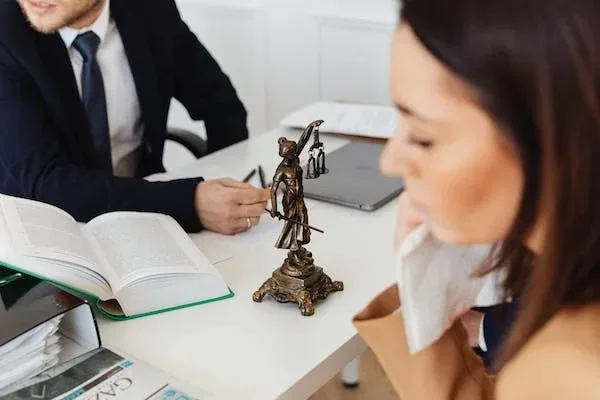Do Prosecutors Want to Go to Trial?
Image source: Pexels.com
If you’ve ever watched a legal drama on TV, you might have the impression that prosecutors are always eager to go to trial and win convictions. But is that really the case? How often do prosecutors actually go to trial, and what factors influence their decision?
In this blog post, I’ll try to answer these questions and more. I’ll also share some tips on how to deal with prosecutors if you’re ever facing criminal charges.
What is a prosecutor?
A prosecutor is a lawyer who represents the government in criminal cases. Their job is to prove that the defendant is guilty beyond a reasonable doubt, and to seek an appropriate punishment for the crime.
Prosecutors work for different levels of government, such as federal, state, county, or city. They may also specialize in certain types of crimes, such as drug offenses, violent crimes, white-collar crimes, or juvenile crimes.
Prosecutors have a lot of power and discretion in the criminal justice system. They can decide whether to file charges against a suspect, what charges to file, whether to offer a plea bargain, whether to drop charges, and what sentence to recommend.
How often do prosecutors go to trial?
According to the Bureau of Justice Statistics, only about 2% of federal criminal cases and 5% of state criminal cases go to trial. The vast majority of cases are resolved by plea bargains, which are agreements between the prosecutor and the defendant where the defendant pleads guilty to a lesser charge or receives a reduced sentence in exchange for avoiding a trial.
Plea bargains are beneficial for both sides because they save time, money, and resources that would otherwise be spent on preparing and conducting a trial. They also reduce the uncertainty and risk of going to trial, where the outcome is never guaranteed.
However, plea bargains also have some drawbacks. They may result in innocent people pleading guilty to avoid harsher penalties or lengthy trials. They may also undermine the public’s trust in the justice system and the right to a fair trial.
What factors influence prosecutors’ decision to go to trial?
There are many factors that affect whether prosecutors want to go to trial or not. Some of these factors are:
- The strength of the evidence. Prosecutors are more likely to go to trial if they have strong and reliable evidence that can prove the defendant’s guilt. Conversely, they are more likely to offer a plea bargain if they have weak or questionable evidence that may not convince a jury.
- The seriousness of the offense. Prosecutors are more likely to go to trial if the offense is serious and carries a high penalty. They may also want to send a message to deter other potential offenders or satisfy public demand for justice. On the other hand, they may be more willing to negotiate if the offense is minor or nonviolent.
- The characteristics of the defendant. Prosecutors may consider the defendant’s background, criminal history, personal circumstances, and attitude when deciding whether to go to trial or not. They may be more inclined to go to trial if the defendant is a repeat offender, has a bad reputation, or shows no remorse. They may be more lenient if the defendant is a first-time offender, has a good character, or shows cooperation.
- The availability of resources. Prosecutors have limited resources and staff to handle their caseloads. They may have to prioritize certain cases over others based on their importance and urgency. They may also have to balance their workload with their performance expectations and career goals.
- The preferences of the victim and the community. Prosecutors may take into account the wishes and interests of the victim and the community when deciding whether to go to trial or not. They may want to respect the victim’s right to participate in the process and seek closure. They may also want to respond to the community’s concerns and opinions about crime and justice.
How to deal with prosecutors if you’re facing criminal charges?
If you’re ever accused of a crime, you should always consult with an experienced criminal defense attorney as soon as possible. An attorney can advise you on your rights and options, communicate with the prosecutor on your behalf, negotiate a favorable plea bargain if possible, or prepare a strong defense for trial if necessary.
Here are some tips on how to deal with prosecutors if you’re facing criminal charges:
- Don’t talk to them without an attorney present. Anything you say can be used against you in court. You have the right to remain silent and request an attorney.
- Don’t accept any offer without consulting your attorney first. Prosecutors may try to pressure you into taking a deal that is not in your best interest. You have the right to review any offer with your attorney before making a decision.
- Don’t lie or withhold information from your attorney. Your attorney needs all the facts and details of your case in order to represent you effectively. Your attorney-client relationship is confidential and protected by law.
- Don’t lose hope or give up. Even if you’re facing serious charges, there may be ways to challenge the evidence, raise defenses, or mitigate the consequences. Your attorney can help you explore all your options and fight for your rights.
Conclusion
Prosecutors are not always eager to go to trial. They have to weigh many factors and make strategic decisions based on each case. Most cases are resolved by plea bargains, which have advantages and disadvantages for both sides.
If you’re ever facing criminal charges, you should always seek legal counsel from a qualified criminal defense attorney. An attorney can help you understand your situation, protect your rights, and achieve the best possible outcome.





0